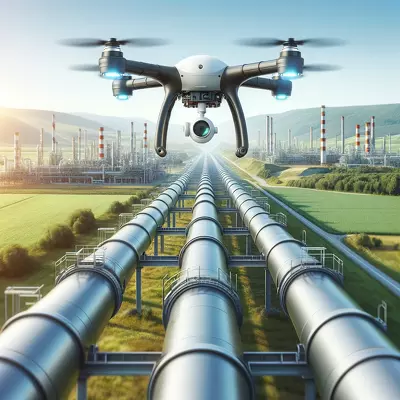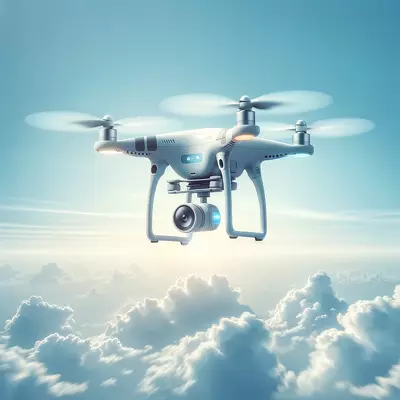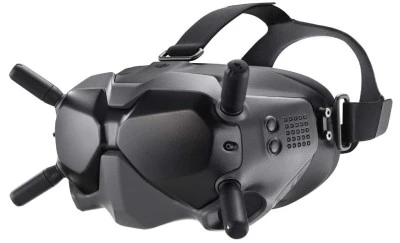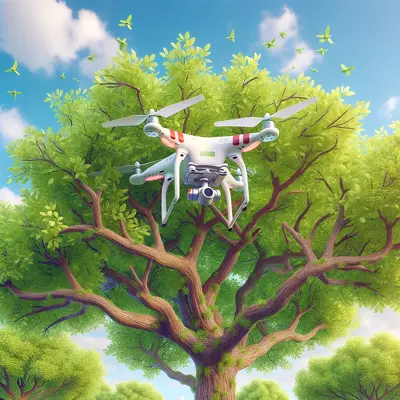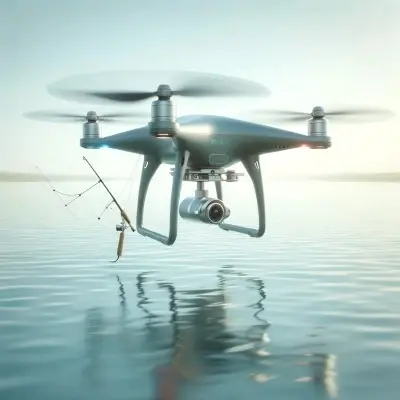Flight Regulations Unveiled: Navigating the Requirements of Drone Operation and Licensing
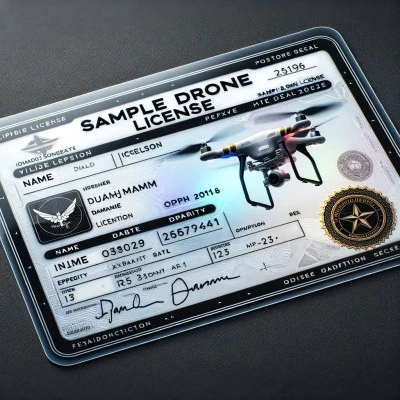
Navigating the skies with a drone comes with its share of exhilaration and responsibility. As uncrewed aircraft become more prevalent for recreational and commercial purposes, understanding the regulatory framework governing their use is essential. This piece explores the requirements and guidelines for drone operation, ensuring enthusiasts and professionals alike remain compliant while enjoying the freedom of flight.
I. Introduction
A. The Rising Popularity of Drones
In recent years, drones have transitioned from military tools to mainstream gadgets, captivating enthusiasts and professionals alike. Their applications range from aerial photography and agricultural monitoring to delivery services and infrastructure inspection. This surge in drone usage is not just a trend; it’s a glimpse into a future where the sky is dotted with these versatile machines.
B. Importance of Understanding Drone Regulations
With the increasing presence of drones in our skies, it’s crucial to navigate this evolving landscape responsibly. Understanding the legal framework surrounding drone operation is not just about compliance; it’s about ensuring safety, privacy, and harmony in shared spaces. This understanding starts with a fundamental question: do I need a license to fly a drone?
II. Understanding Drone Licensing
A. Definition and Purpose of Drone Licensing
Drone licensing is a regulatory mechanism to ensure that drone operators have the necessary knowledge and skills to operate their devices safely. It’s akin to a driver’s license for the sky. The purpose is multifaceted: to protect the airspace, to minimize conflicts with human-crewed aircraft, and to respect privacy and property rights on the ground.
B. Key Factors Determining the Need for a License
- Drone Weight and Type
The need for a license often depends on the drone’s weight and type. Lightweight recreational drones might not require licensing, but as the drone’s capabilities and size increase, so do the regulatory requirements. - Intended Use: Recreational vs. Commercial
The purpose of your drone flights is also a determining factor. Recreational use, characterized by flying for personal enjoyment, often comes with fewer strings attached. In contrast, commercial use, which involves using a drone for business purposes, usually necessitates a formal licensing process. - Geographic and Airspace Restrictions
The area where you intend to fly your drone can also dictate licensing needs. Sensitive locations, such as near airports or in densely populated urban areas, may have stricter regulations and require operators to have a license, even for recreational use.
III. The Process of Obtaining a Drone License
A. Steps to Acquire a Recreational Drone License
While recreational pilots may not always need a formal license, they are usually required to follow specific guidelines, register their drones, and, in some jurisdictions, pass an online safety test to ensure they understand the rules of the sky.
B. Steps to Acquire a Commercial Drone License
- Eligibility Criteria
Commercial drone pilots must meet certain eligibility criteria, which typically include age requirements, proficiency in English, and a suitable physical and mental condition for safe operation. - Required Documentation and Training
Prospective commercial pilots must undergo training, which often includes hands-on flight practice, understanding of regulations, and knowledge of operational procedures. This training culminates in the need to provide documentation, such as proof of training completion and a clear record of compliance with aviation laws. - Exam and Certification
The final hurdle is a certification exam that tests a pilot’s knowledge of airspace regulations, flight operations, and emergency procedures. Passing this exam grants the pilot a license to operate drones for commercial purposes, opening the door to numerous business opportunities.
IV. Operating a Drone Without a License
A. Potential Risks and Penalties
Flying a drone without the necessary license or failing to adhere to regulations can lead to severe consequences. These can range from fines and confiscation of equipment to legal actions, especially if the operation endangers public safety or privacy.
B. Understanding No-Fly Zones and Privacy Laws
It’s also paramount for drone operators to recognize and respect no-fly zones—areas where drone flight is restricted or prohibited. These typically include areas near airports, military bases, or national parks. Moreover, adhering to privacy laws, which protect individuals from being filmed without consent, is not just about compliance; it’s about respecting the societal norms that bind us together.
As we delve deeper into the world of drones, it’s clear that the freedom to navigate the skies comes with a responsibility to understand and abide by the rules that govern them. The journey from curiosity to compliance is a crucial path for every aspiring drone pilot, ensuring that the skies remain a space for innovation, enjoyment, and safety for all.
V. FAQs
Q: Do all drones require registration and licensing?
A: No, the requirement to register and license a drone usually depends on its weight, type, and intended use. Lightweight and recreational drones often have more lenient requirements.
Q: What is the difference between recreational and commercial drone use?
A: Recreational use involves flying a drone for personal enjoyment, whereas commercial use involves using the drone for business purposes. Commercial use often necessitates a higher level of certification and adherence to regulations.
Q: How can I find out if I’m flying in a no-fly zone?
A: Many countries offer apps or websites where you can check maps of no-fly zones. It’s essential to consult these resources before your flight to ensure you’re not entering restricted airspace.
Q: What are the potential penalties for flying a drone without a license?
A: Penalties can include fines, confiscation of your drone, and, in severe cases, legal action, especially if the unlicensed flight compromises public safety or privacy.
Q: Can I fly my drone near an airport?
A: Flying near airports is generally restricted and requires special permission due to the risk of interfering with human-crewed aircraft. It’s crucial to check local regulations and no-fly zone maps before attempting such a flight.
Q: What should I do if my drone accidentally captures someone’s private moments?
A: It’s best to respect privacy by not sharing or distributing the footage. Familiarize yourself with local privacy laws to understand your responsibilities and potential liabilities in such situations.
Q: Is it necessary to have insurance to operate a drone?
A: While not always mandatory, having insurance is advisable, especially for commercial drone operations, as it can protect you against liability in case of accidents or damage.
VI. Conclusion
A. The Significance of Compliance in Drone Operation
Navigating the realm of drone operation is not just about mastering the controls; it’s about understanding and adhering to the laws that ensure safe skies for everyone. Compliance is not a hurdle but a foundation that upholds the integrity and sustainability of drone activities, fostering an environment where innovation and safety coexist.
B. Encouraging Responsible Drone Use
The horizon of drone technology is expanding, and with it, the responsibility of each operator is to fly with awareness and respect. By embracing regulations, understanding the weight of our actions in the air, and advocating for responsible usage, we collectively ensure that the future of drone flight is not just prolific but also harmonious and secure.
VII. Suggested Readings
Before you take to the skies, arming yourself with knowledge is as crucial as your controller. These five books provide a comprehensive understanding of drone operation, from the basics of flying to the intricacies of regulations:
- “The Drone Pilot’s Handbook” by Adam Juniper – A complete guide offering insights into the mechanics of drones, flying techniques, and the legalities of drone operation.
- “Drones for Dummies” by Mark LaFay – An accessible introduction to drones, covering the basics of operation, maintenance, and the different types of drones available for enthusiasts and professionals.
- “The Handbook of Drone Photography” by Chase Guttman – Perfect for aerial photography enthusiasts, this book explores techniques for capturing stunning aerial images and videos.
- “Drone Entrepreneurship: 30 Businesses You Can Start” by Dr. Jerry LeMieux – An excellent resource for those considering commercial drone ventures, offering practical advice on starting and managing a drone-based business.
- “FAA’s Remote Pilot Test Guide” – An essential read for those aiming to pass the FAA’s certification exam, providing comprehensive information on regulations, airspace, and operating requirements.
In this rapidly evolving field, staying informed and educated is paramount. These books not only offer the practical knowledge to operate drones safely but also inspire the innovative and responsible use of this technology. As we continue to explore the potential of drones, let’s ensure that our journey is guided by knowledge, responsibility, and a commitment to safe skies.
